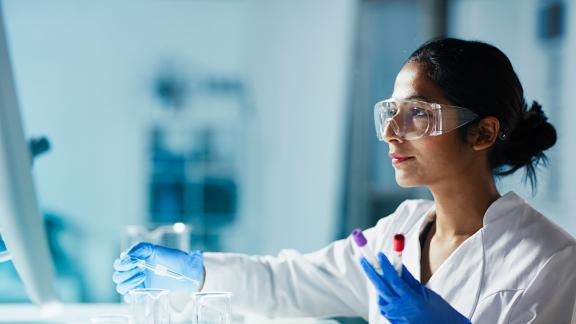Service improvements continue despite system challenges

It’s easy to forget about or miss the system improvement and transformation that’s happening all the time across the NHS in Wales.
The news is dominated by negative stories and there’s no exception when it comes to coverage of the NHS. So it’s easy to forget about or miss the system improvement and transformation that’s happening all the time across the NHS in Wales. Staff are always striving to do things better, make the system better and ultimately make people’s lives better.
By 2040, it’s estimated almost 25,000 people will be diagnosed with cancer in Wales every year. The figure is currently 20,000.
This month, we published a briefing looking at some of the innovative ways in which NHS organisations are supporting people through cancer, transforming the way cancer services are delivered and improving waiting times.
Like other health and care services, cancer services remain under great pressure with continued high and increasing levels of demand. By 2040, it’s estimated almost 25,000 people will be diagnosed with cancer in Wales every year. The figure is currently 20,000.
Our briefing showcases examples of improved diagnosis, treatment and support for patients with cancer. Services and staff aim to care for those affected through both an innovative and empathetic approach, which involves cross-organisation working with NHS and external partners.
As Tenovus Cancer Care chief executive, Judi Rhys MBE, said recently: “The time has come to have an open and transparent dialogue about how cancer can be prevented in the first place, as well as supporting people to understand their service may look different in the future. Circumstances are changing and we cannot stand still.”
Prevention and early intervention
Prevention and early intervention are fundamental in reducing the exposure to risk factors for many types of cancer, and in addressing the barriers to screening and diagnosis. Due to the importance of early intervention in the identification and treatment of cancer, Health Education and Improvement Wales have launched platform GatewayC, giving primary care clinicians access to free cancer diagnosis education.
Clinical advancements
Clinical trials are crucial for advances in care and treatment, with Velindre University NHS Trust progressing the co-sponsored PATHOS trial. The trial looks at the role of less intensive treatment after minimally invasive surgery for people whose cancers have tested positive for Human Papilloma Virus (HPV), with the aim of reducing treatment side effects.
Specialised roles
NHS organisations are also developing new roles, with a focus on providing seamless and personalised care to patients. Betsi Cadwaladr University Health Board has recruited metastatic clinical nurse specialists who offer both physical and emotional support.
Digital innovations
Digital has also been an important tool in improving services and speeding up processes, freeing up vital resource. The use of the My Clinical Outcomes platform at Cardiff and Vale University Health Board aims to place the patient at the centre of treatment improvements by personalising clinical care. This approach has already been successful at avoiding hospital admissions and reducing hospital stays at the Sussex Cancer Centre.
Sadly more and more people are being affected by and living with cancer. That’s why it’s vital we do what we can to find innovative ways to improve services for patients now and in the future, rather than simply doing things the same way and watching waiting lists grow.
Focusing on prevention and early intervention is key, but we must not forget the importance of clinical advancements, personalised care and digital innovations to improve processes, treatment and care for people at their time of need.
As demand for cancer services and support increases, it is vital that the public are actively engaged in a new dialogue about their own health and wellbeing. This is why we must have a cross-government and cross-sector public conversation on the future of health and care services and the impact that we are seeing due to changes in the population’s health and wellbeing.
As Tenovus Cancer Care chief executive, Judi Rhys MBE, said recently: “The time has come to have an open and transparent dialogue about how cancer can be prevented in the first place, as well as supporting people to understand their service may look different in the future. Circumstances are changing and we cannot stand still.”


